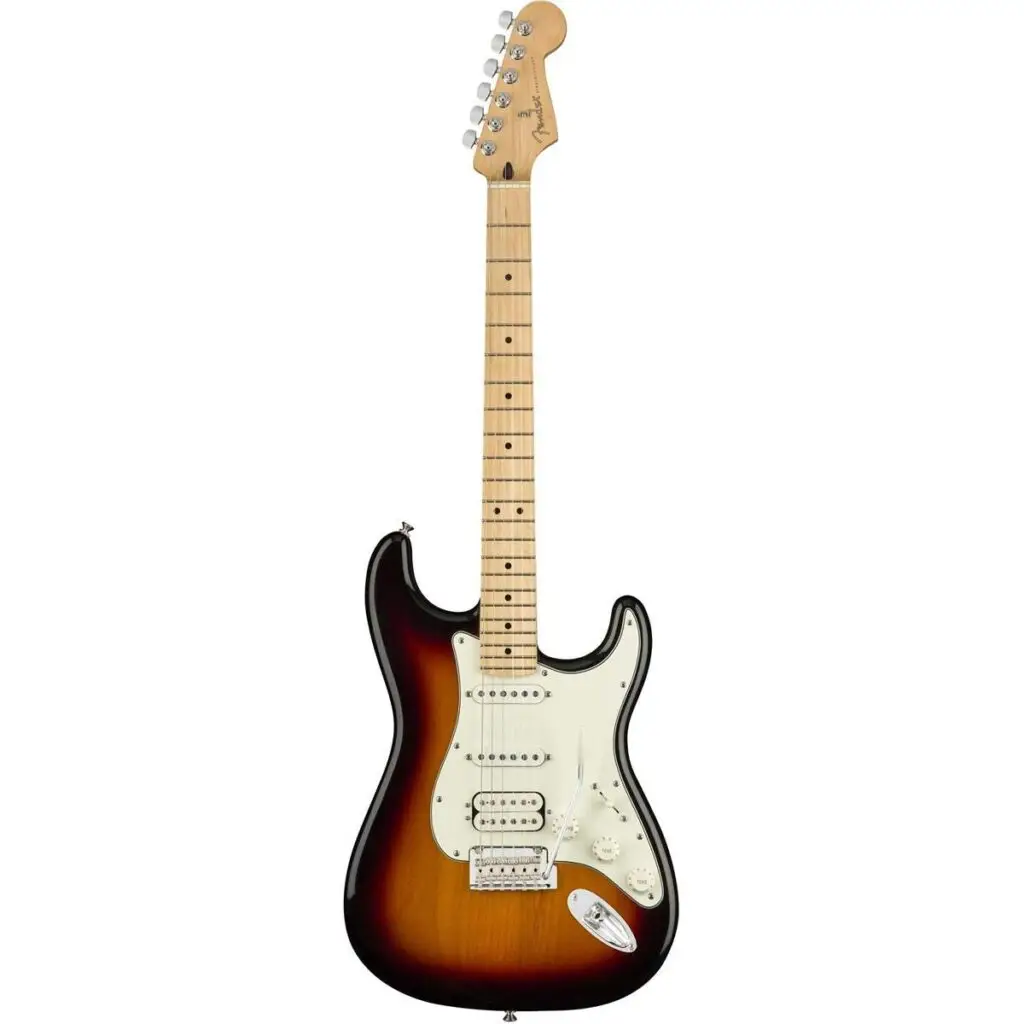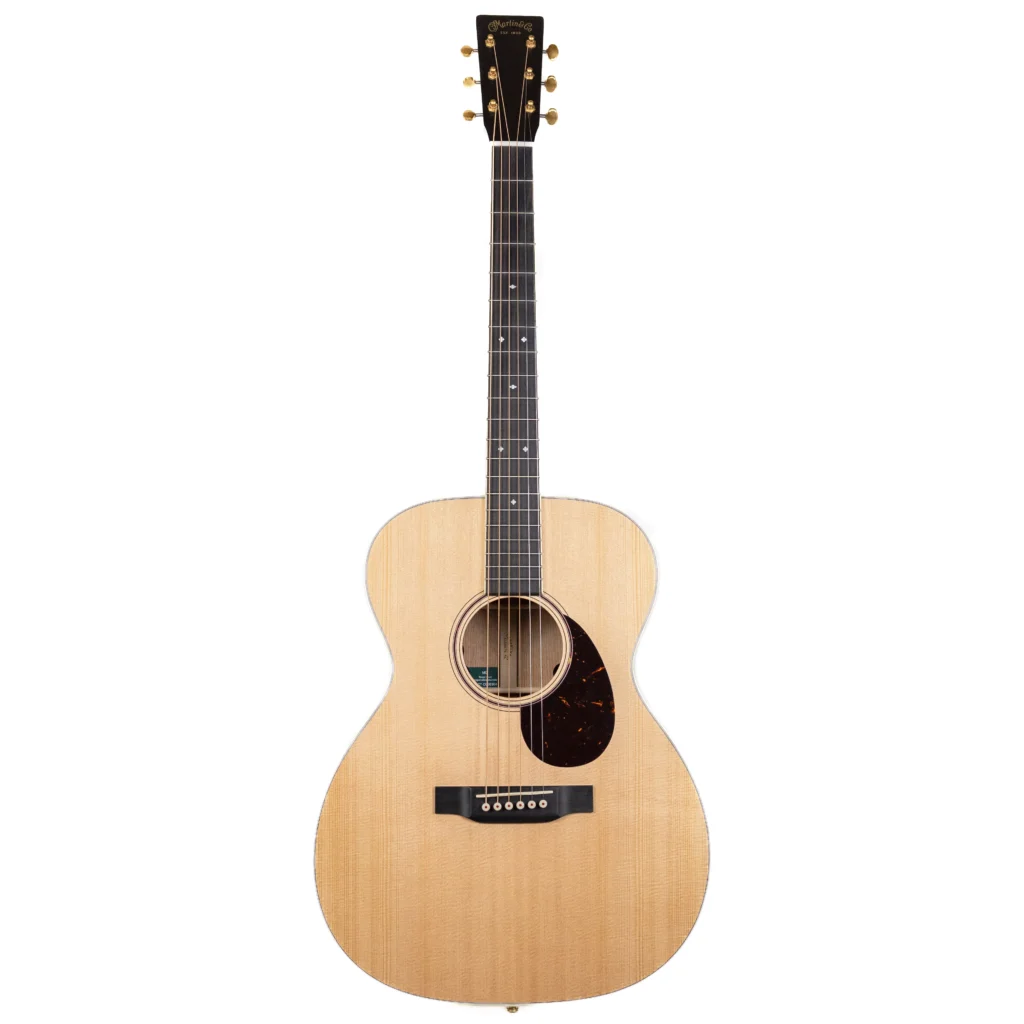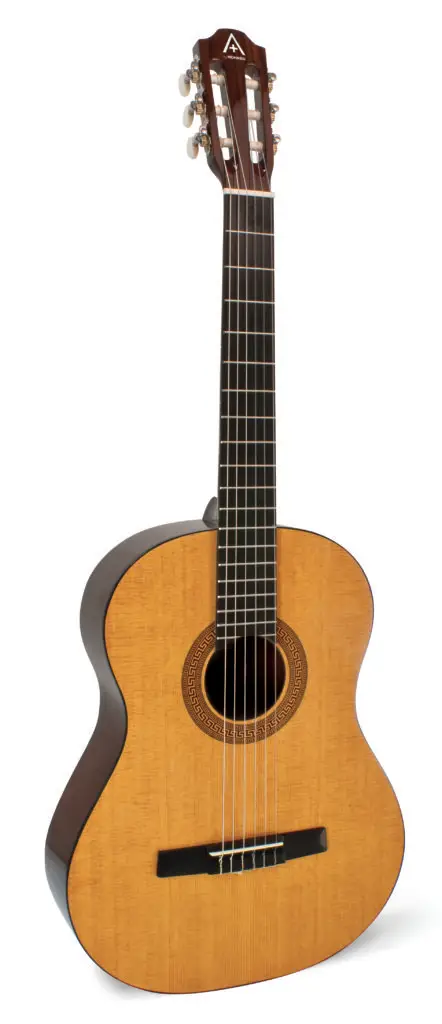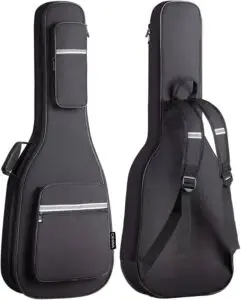Guitar Starters Guide
If you’re new to guitar, it can be daunting trying to figure out where to start. There are so many options to choose from and it can be overwhelming.
This guide is an attempt to try and save you from some of the mistakes people can make when buying their first guitar and help you make an informed decision.
Electric vs Acoustic
A common misconception is that beginners start with acoustic guitars. This couldn’t be further from the truth. If you want to learn rock guitar, then buy a rock guitar. Buy what inspires you to play.
There are two different types of acoustic guitars: Nylon string and Steel string. Steel string guitars are what you hear in most pop music, rock, and country. Nylon string is what you hear in most classical and Spanish styles of music.
If you’re not sure about which to choose, here are some things to keep in mind.
Electric Guitars
Easier to play: Electric guitars typically have lighter gauge strings and a thinner neck, making it easier to press down on the strings, which is helpful for beginners.
Quieter practice: With an electric guitar, you can use headphones with an amplifier or practice without making much noise. This is great if you’re in a shared living space.
Versatile sound: Electric guitars can produce a wide range of sounds with effects pedals, amp settings, and tone controls. This gives beginners room to experiment with different genres and styles.
More forgiving: Because of the amplified sound, small mistakes and slight finger pressure issues can be less noticeable compared to an acoustic guitar.
Cool factor: Many iconic musicians play electric guitars, so it might inspire a beginner to keep practicing and stay motivated. It’s also often seen as a more modern, versatile instrument.
Lightweight: While some electric guitars can be heavy, many beginner models are lighter than their acoustic counterparts, which can be easier for a beginner to hold and play for longer sessions.
More control over tone: Electric guitars give you the ability to shape your sound more precisely with volume, tone knobs, and effects.
Better for learning modern genres: If you’re into rock, pop, blues, metal, or other modern genres, electric guitars are usually the go-to choice for achieving authentic sounds.

Acoustic Guitar (Steel String)
No need for an amplifier: Unlike electric guitars, you don’t need any extra equipment like an amp to make sound. You can just pick it up and play anywhere, which is super convenient for practicing or playing on the go.
Great for learning basic skills: Steel-string acoustics are excellent for beginners who want to develop basic fingerpicking, strumming, and chord techniques. The sound is natural, and you’ll build good habits without relying on effects or amplification.
Versatile for many genres: Whether you want to play folk, pop, country, blues, or even rock, the steel-string acoustic guitar can cover a wide range of musical styles without needing a lot of extra gear.
Durability: Steel-string guitars are often made with solid wood that holds up well over time. They can handle a bit of rough use, which is great if you’re a beginner who might not be super careful with your instrument at first.
Helps develop finger strength: The steel strings are tougher to press down than nylon strings, so playing on a steel-string acoustic helps build finger strength and dexterity, which can make transitioning to other types of guitars easier later on.
Good for solo playing: If you like to sing while playing, steel-string acoustics are great because they can accompany vocals without needing any external amplification. The clear tone helps your voice shine through.
Affordable options: Many beginner-friendly acoustic guitars are more affordable than electric guitars (plus amp and pedals), making them a cost-effective choice for someone just starting out.

Acoustic Guitar (Nylon String)
Easier on the fingers: Nylon strings are softer and gentler on your fingers compared to steel strings, making it less painful for beginners when pressing down on the strings, especially in the early stages of learning.
Perfect for classical and fingerstyle music: If you’re interested in classical guitar, flamenco, or fingerstyle techniques, a nylon-string guitar is the ideal choice because it’s designed for these styles, providing the warm, mellow tone these genres require.
Comfortable for beginners: The neck of a nylon-string guitar is often a bit wider, which can be more comfortable for beginners learning to form clean chords, especially if you have larger hands or prefer more space between the strings.
Softer sound: The mellow, warm tone of nylon strings is great for playing at home or in small settings without being overly loud or sharp. It’s a softer sound that’s easier on the ears for both the player and listeners.
Great for kids or those with smaller hands: The nylon strings and wider neck are often more comfortable for children or players with smaller hands, offering a smoother transition as they learn to play.
Affordable entry point: Many nylon-string guitars are affordable for beginners, and because they don’t require an amplifier or extra equipment, they can be a budget-friendly choice to get started.
Durability: Nylon strings are less prone to breakage than steel strings, which is nice for beginners who may not always be as gentle with their instrument.

Full Size vs. 3/4 Scale
Depending on your age and size, it might be worth it to get a smaller than average guitar. Most people will eventually want to have a full size guitar but if you’re having a hard time reaching the end of the guitar neck, you likely need a 3/4 scale guitar.
If you’re not sure how to test it, go to your local music store and try sitting with a guitar. One hand is used for picking, the other is for holding the strings down (known as fretting). When sitting with the guitar, touch the very end of the strings with your fretting hand. Does the elbow of your fretting hand have a bend in it or is it close to being straight? If it’s straight, go with a 3/4 scale guitar. If it has a reasonable bend to it, then you should be fine with a full size.
It is likely that most kids will grow into a full size guitar. It is up to you when to make that leap. The important thing at the beginning is that you are comfortable and able to hold down the strings well.
- Go with a full-size guitar if you’re an adult with average hand size or bigger, or if you want a guitar that offers more sound and versatility for different styles.
- Go with a 3/4 scale guitar if you’re a younger player, have smaller hands, or prefer a more comfortable and portable instrument to start with.
Accessories
There is more to the guitar than just the instrument itself. There are a wide variety of extras to get for the guitar. We will be listing what are the essentials.
Case
It’s important to protect your investment especially if you need to travel with it. While you can spend a lot of money on a hard case, we recommend a soft case also known as a gig bag. Gig bags don’t offer as high a level of protection but they are much less expensive than a hard case. They usually will offer you pockets to hold your other accessories as well and are the perfect addition to anyones starter kit.

Picks
This accessory does not apply if you are looking to play classical guitar styles. However, for most people the pick is another must have item. There are a lot of shapes and sizes when it comes to picks. Picks are usually measured by how thick they are. They can also be made out of different materials. In the beginning, it is important to simply start with a standard size and thickness so you can have a good understand of what “normal’ is. After that you can choose to change the size and thickness once you’ve had some experience.
Tuner
Guitars come out of tune quite easily and so you will need to have a tuner on hand to keep your guitar sounding good. Tuners are relatively inexpensive and can be found at almost any music store. It’s hard to go wrong today with the number of options available but some have a few choice features that make the job just a little bit easier.

Stands
A stand might now seem like an important accessory but it has a very important purpose. That is to get the guitar out of it’s case and into your line of sight. “Out of sight, out of mind” as the saying goes. If it is out you will want to play it and in the early stages, that is the most important thing. Keep your instrument at the ready and you’ll have a hard time not picking it up.
Strap
Even if you don’t plan on standing up and playing, having a strap can be really helpful with keeping the guitar upright. Posture is important and having the strap to hold the guitar in position forces you to maintain good posture.
Our Recommendations
Here are a list of brands and local stores we trust to help get you started.